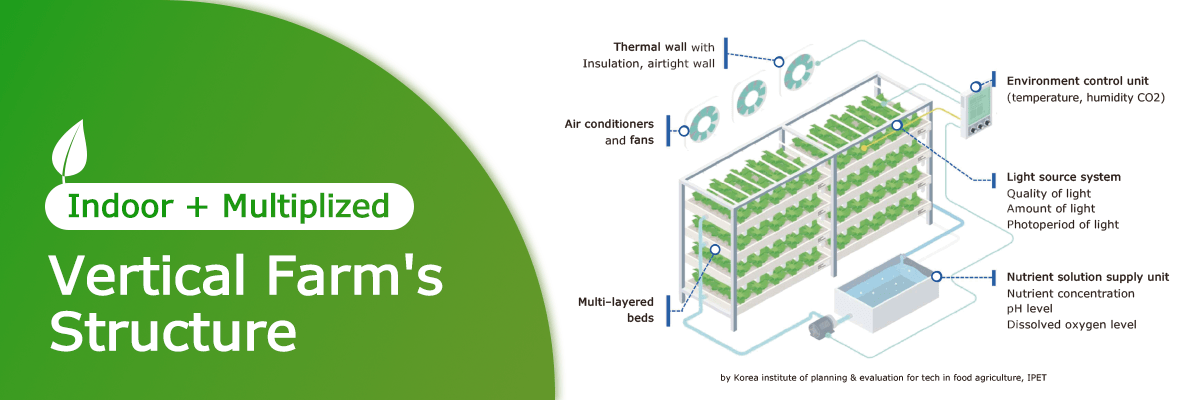Plant Factory for Efficiency and The Environment, Vertical Farm
For modern individuals who are more accustomed to purchasing crops rather than cultivating them themselves, the term “vertical farm” may seem somewhat unfamiliar. However, vertical farming is closely tied to contemporary society and is emerging as a cornerstone of next-generation precision agriculture, making it worthy of attention.
Vertical farming refers to indoor, multi-layered plant factories where artificial light, temperature, and humidity can be controlled. The scale ranges from small setups with a few shelves to large-scale operations utilizing entire high-rise buildings as cultivation spaces. Vertical farms are characterized by significantly higher crop yields per unit area compared to open fields or greenhouse farming. However, simply stacking pots in a greenhouse with environmental controls cannot be classified as vertical farming. This is because vertical farming employs a soilless organic farming method known as “hydroponics.”

The principle of hydroponics is simple and efficient. Essential soil nutrients are dissolved in water and supplied to crops, while water released through plant transpiration is collected in tanks and mixed with nutrients again, and so on. This sustainable method has the advantage of significantly reducing water usage. As water scarcity intensifies globally, the recycling of agricultural water is a main key factor that distinguishes hydroponics from traditional farming.
The most critical aspect of vertical farms employing innovative agriTech is the environmental control system. If any factor, such as water supply, indoor temperature, or artificial lighting deviates, the condition of crops can deteriorate rapidly. This highlights another advantage of vertical farming: its digital environmental control system. With advancements in agriculture technology, efforts to integrate cutting-edge technologies into vertical farming are ongoing in Korea and many other countries, and these management systems are expected to continue evolving. Vertical farming is thus regarded as a revolutionary concept in primary industries, showcasing the agricultural dimensions of a transforming society.
Korea Institute of Planning and Evaluation for Technology in Food, Agriculture and Forestry, 「Domestic and International Trends and Development Directions of Vertical Farms」, 『2024-02, Industry, Technology, and Policy Trend Report』
